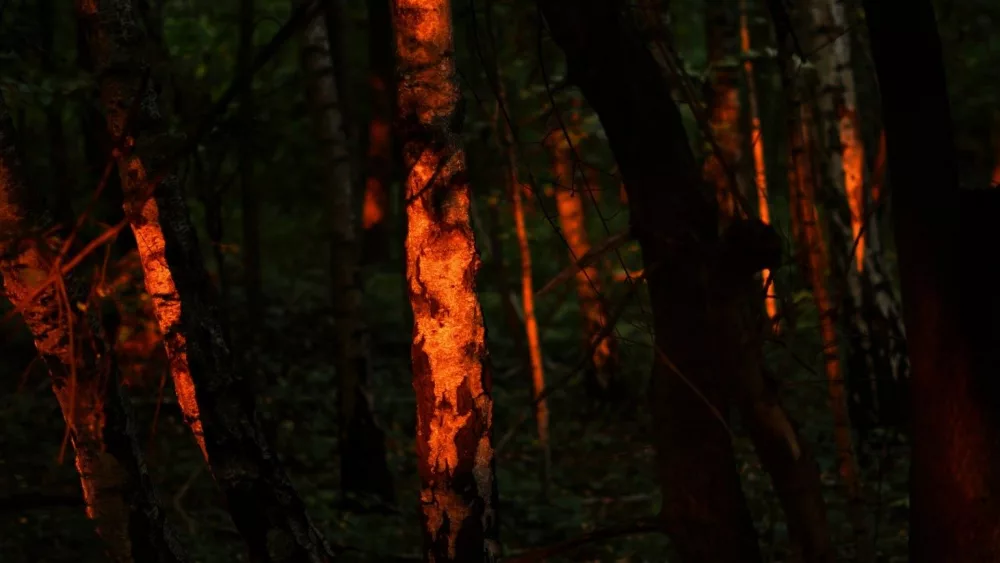Washington, D.C.–Senior member of the U.S. Senate Budget Committee Senator Mike Crapo (R-Idaho) submitted a statement for the record on the Committee’s hearing entitled, “A Burning Issue: The Economic Costs of Wildfires,” urging Congress to take action to reverse the disastrous Cottonwood decision. The Cottonwood decision ruled the U.S. Forest Service (USFS) is required to review its forest management plans whenever new information related to an endangered species is found, effectively providing a loophole for third parties to halt important forestry restoration work.
“No matter how a wildfire starts, it is evident they are burning longer and hotter due to poor management of our federal forests,” Crapo said. “When we talk about the economic costs of wildfires, we must focus the conversation around the preparedness of federal land management agencies and what tools Congress can give them to alleviate wildfires.”
“[The Cottonwood] decision provides a loophole for outside groups to effectively pause forestry activity by filing a lawsuit,” Crapo continued. “Passing a Cottonwood fix will reduce the risk of wildfires and allow agencies to partake in important wildfire restoration activities. Congress should also consider further expediting the environmental review process for projects that remove invasive species, like cheatgrass and pinyon-juniper, from federal lands and forests. Other proven methods, such as prescribed fires and targeted grazing, must also be part of the conversation.”
“Thank you, Chairman Whitehouse and Ranking Member Grassley, for holding a hearing on the economic costs of wildfires. Like most of the western U.S., Idaho’s forests and other federal lands are prime locations for wildfire activity. These blazes are costly for all involved, including local, state, federal and private entities.
“I was proud to work with my friend and fellow committee member, Senator Wyden, to pass the Wildfire Disaster Funding Act. This crucial legislation stopped the practice of “fire borrowing,” which forced the U.S. Forest Service (USFS) to raid its fire prevention and forest health accounts to pay for large and expensive wildfires. Now, wildfires are rightfully classified as natural disasters and agencies can respond quickly without jeopardizing funding for wildfire reduction efforts.
“In 2022, wildfires burned over 436,000 acres in Idaho alone. The vast majority of these fires burned on lands managed by the Forest Service or the Bureau of Land Management (BLM). Fifty-two percent of Idaho’s burned acreage this year were not caused by climate; instead, they are the result of wildfires started by humans. Idaho had the unfortunate ranking of being in the top 5 states for acres burned in 2022, including the disastrous Moose Fire that impacted Salmon, Idaho, and other nearby communities, burning for over 100 days and consuming more than 130,000 acres.
“No matter how a wildfire starts, it is evident they are burning longer and hotter due to poor management of our federal forests. When we talk about the economic costs of wildfires, we must focus the conversation around the preparedness of federal land management agencies and what tools Congress can give them to alleviate wildfires.
“The first thing Congress must do is pass legislation to reverse the disastrous Cottonwood decision handed down by the Ninth Circuit. As a result of this ruling, the USFS is required to review its forest management plans and consult with the U.S. Fish and Wildlife Service whenever:
- a new species is listed under the Endangered Species Act;
- when new critical habitat is designated; or
- when “new information” about a listed species becomes available.
“This decision provides a loophole for outside groups to effectively pause forestry activity by filing a lawsuit. I will continue working with my colleagues to pass bipartisan legislation reversing this decision. Passing a Cottonwood fix will reduce the risk of wildfires and allow agencies to partake in important wildfire restoration activities.
“Congress should also consider further expediting the environmental review process for projects that remove invasive species, like cheatgrass and pinyon-juniper, from federal lands and forests. Other proven methods, such as prescribed fires and targeted grazing, must also be part of the conversation.
“The severity of western wildfires makes clear we cannot let up in working to ensure firefighters and land management agencies have the resources necessary to prepare for wildfire response and reduce the threat of wildfires. I look forward to continuing the dialogue on these issues as we move forward in the 118th Congress.”




